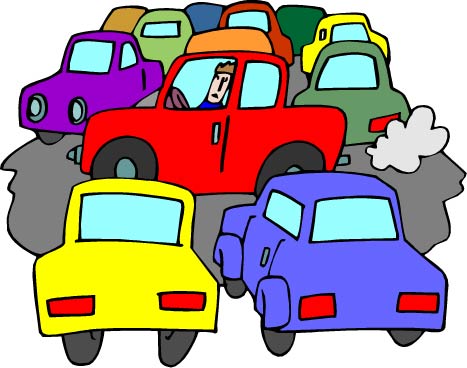
SCATPOOY seems to be present in quite a few people these days. Although not quite an epidemic, you want to make sure you don’t catch it. The best thing to do is to immunize yourself now. However, if you notice any symptoms, you’ll want to deal with them immediately.
Symptoms may include paralysis, insomnia, and loose bowels, but will always include overwhelming worry, fear and anxiety.
SCATPOOY (SCAring The Poop Out Of Yourself) won’t kill you, but if left untreated, it can cripple you by leaving you overwhelmed, fearful, and hiding out in the bathroom or stuck in bed.
I experienced this debilitating disease myself, shortly after I bought my house in the middle of the recession in 2009. My business was really slow. Like a parasite, a scary thought started to bore through my brain. It went like this: “I’m going to lose my house and I just bought it.” This thought grew in intensity and fear as I continued to feed the virus with negative scenarios, such as imagining me and my wife packing up our stuff and moving back into an apartment, feeling ashamed and embarrassed.
I found myself expecting something bad to happen. Because of the negative vibes I was sending out, my business phone stopped ringing almost completely, which made the situation worse. I was nervous as a snail crossing the highway.
One night I was lying in bed freaking out, thinking about all the past pickles I’d found myself in. It then occured to me that I had been in situations much more dire, and had managed to make it through. I’d never been homeless, always had enough to eat, and always had people willing to help me out. I realized that I had been creating frightening images that had not taken place. Yes, I had been infected with SCATPOOY. I was scaring the crap out of myself.
I knew immediately where I had been infected, so I stopped watching and listening to the news about everybody losing their homes. It’s not that I didn’t care, I just didn’t need to hear all the sad stories. I needed to take action and make sure that that didn’t happen to me. That night, I swore an oath: “This is our house, and here we will stay.”
The truth was, I was not even close to losing my house. Yet, I was acting as if it was already happening. That night, I stopped focusing on what I didn’t want, and started to focus and think about what I did want.
It’s good to be concerned, and to plan for eventualities. It’s smart to see the writing on the wall and be prepared with a contingency plan. It’s another thing entirely to create fear and worry over something that doesn’t exist or that hasn’t happened yet. That’s called Scaring The Poop Out of Yourself, and it will not help you. If you feel that you have some symptoms of this malady, then you need to start now to cure yourself.
First of all, remove yourself from possible sources of infection: the negative news, negative people who get off on Scaring The Poop Out Of You, and information that only gives you the worse case scenario instead of what actions you can take.
Second, try to see reality clearly. SCATPOOY can cloud your vision. Try to see what’s happening now, instead of the disaster that you think will happen. Then deal with what is in front of you; it’s probably not as bad as the horror film in your head.
Next, change your language. In the cold fever of fear, what are you deliriously babbling about to yourself? Does it sound like “Oh my god, I just know that this is going to be terrible?” Take a chill pill, then stop and ask yourself: “How do I know that? Can I predict the future? I don’t know that it’s going to be terrible.” Even if it has been that way before, the past does not have to equal the future.
Be sure of the cure. Get clear about the outcome you want. Create it in your mind along with all the feelings that will come from having it. Start to shift your focus away from your symptoms and onto wellness. Use positive affirmations such as “I’m going to be OK.”
Write yourself a prescription. Determine what actions you can take now to prepare, remedy, or plan for the situation that’s worrying you. Realize that for every problem, there is a solution. It may not be the ideal solution, but try something. Doing nothing leaves you even more paralyzed.
Trust in your ability to overcome the infection of fear. I can assure you of this: you have no idea how resilient you can be. Sometimes we need to be put to the test to force us to reach deep down inside for courage, resourcefullness and plain ole grit. Tell yourself, “I’m up for this challenge, it may not go my way but I won’t let it take me down.”
Lastly, immunize yourself. Vaccinate your brain with daily positive affirmations. Supplement with mind vitamins from those who have overcome major challenges and have left a record of their experiences. Have a support team of positive spin doctors give you daily doses of inspiration. Exercise your right to choose and control your thoughts and create your own reality.
SCATPOOY may be a chronic condition that you’ve been living with for some time, or it may be a new condition caused by the stress of something happening in your life that is out of your comfort zone. Which ever it is, don’t beat yourself up. Like they say, poop happens. Just come on out of the bathroom or out from under the covers and give me a call, I can help.
Next month we’ll discuss a condition many people suffer from that is the opposite of SCATPOOY. It’s known as NCI-Burp. (Negative Crap Inside- Building Up and Ready to Pop) I hope you don’t have it…
If you liked this post, please leave a comment and/or share it with your social networks.
Your companion on the journey to transformation,
TMan
Ted A. Moreno
Personal/Small Business Coach
Certified Hypnotherapist
www.TedMoreno.com
FEEL FREE TO — USE THIS ARTICLE IN YOUR EZINE, WEB SITE OR BLOG. Just let me know that you are, and include the following with it:
Ted A. Moreno is a Certified Hypnotherapist and Success Performance Coach. Ted empowers his clients to transform their lives by helping them reach their goals of success, abundance, personal development, health and happiness. To learn more, visit www.TedMoreno.com/blog











